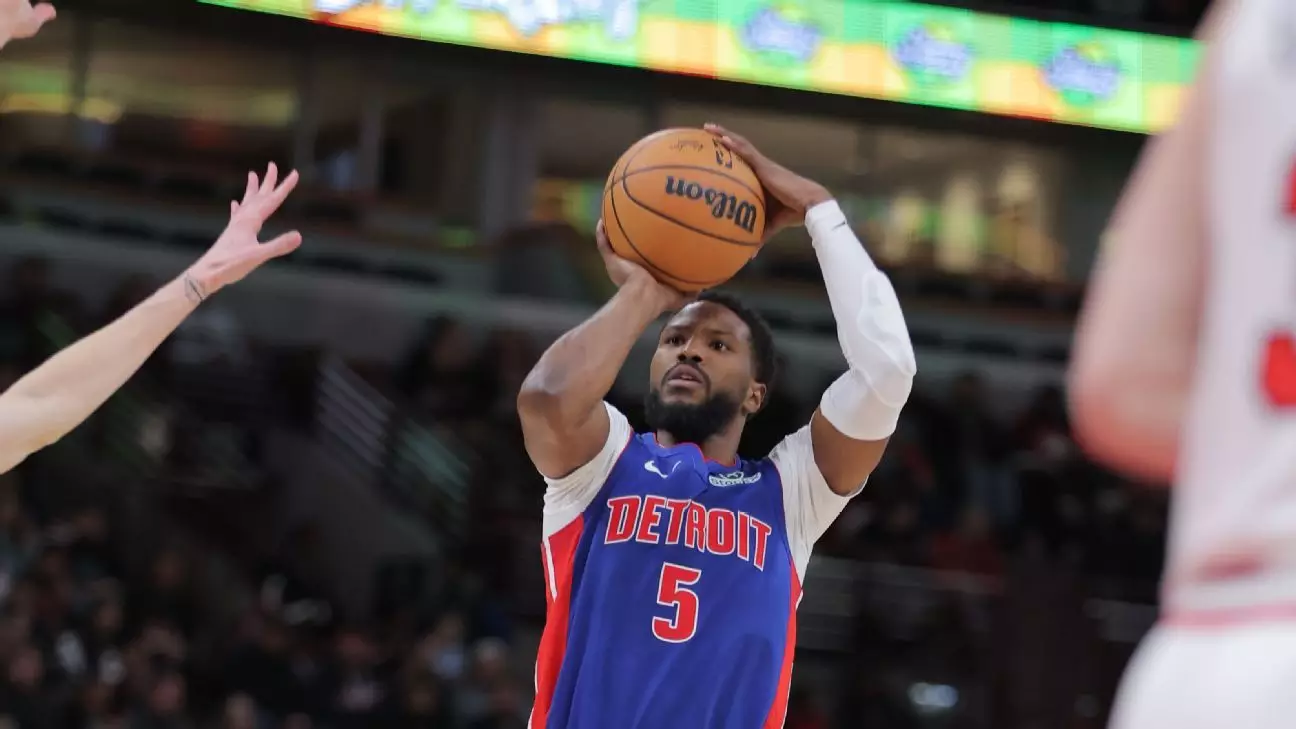The recent revelation of FBI scrutiny surrounding Malik Beasley on gambling-related allegations is more than a mere headline—it’s a disconcerting milestone for the NBA’s ongoing battle against corruption. While every individual deserves the presumption of innocence, the circumstances described raise serious questions about the integrity of professional sports, particularly amid the growing complexity of legalized sports betting. The fact that federal authorities are examining Beasley’s involvement in suspicious prop bets is alarming, especially given the NBA’s elevated profile in the betting world.
Beasley, who has experienced a resurgence in his career with the Detroit Pistons after stints on several teams, is alleged to have been involved during his 2023-24 season with the Milwaukee Bucks. The core of the inquiry is rooted in unusually heavy betting on his game statistics, specifically a scenario where an astoundingly large number of bets were placed on him securing fewer than 2.5 rebounds against the Portland Trail Blazers in January 2024. Oddly enough, Beasley far exceeded that amount with six rebounds—causing the bets on the under to lose. This pattern of bets, flagged by U.S. sportsbooks, suggests an insider connection with knowledge or manipulation that sportsbook analytics cannot readily explain.
The NBA’s Reputation on the Line Amid Growing Risks
Sports betting is an intricate double-edged sword. On one side, it offers fans increased engagement and lucrative partnerships for leagues; on the other, it invites a labyrinth of temptations and vulnerabilities for athletes. For years, leagues have tried to protect their integrity through internal investigations and punitive measures, yet the rise of federal involvement signals that NBA self-regulation might not suffice in an era dominated by sophisticated betting futures and prop markets.
Beasley’s predicament comes on the heels of previous NBA controversies, such as the case of Jontay Porter, who was banned for leaking confidential information and betting on games, and Terry Rozier’s ongoing federal investigation for suspicious betting patterns. These repeated incidents underscore how pervasive the gambling threat has become and expose cracks in the NBA’s armor. The fact that federal prosecutors are now involved marks a stark escalation and challenges the league’s autonomy in policing itself.
The Personal Costs Beyond Legal Proceedings
For Beasley, the investigations have already halted discussions around a significant extension with the Pistons—a $42 million contract that could have afforded him long-term stability. Instead, his career now hangs precariously in the balance as the public and professional spheres wrestle with the potential fallout. This serves as a critical reminder that players are not just athletes but individuals subject to immense pressure, both from the temptations of vast gambling markets and the high stakes of their careers.
Moreover, Beasley’s prior legal troubles, notably a 2020 guilty plea related to a felony for threats of violence, compound the negative narrative around him. While his on-court production has generally been impressive—him setting a Pistons franchise record for 3-pointers made—his off-court challenges seem to be converging in a dangerous way. This confluence of personal history and new allegations may unfairly bias public opinion but also points toward the urgent need for holistic support and accountability frameworks for players.
A Call for Robust and Transparent Reforms
The Malik Beasley case must be a wake-up call for the NBA to adopt more aggressive and transparent measures. The league cannot afford to react passively, relying mainly on after-the-fact punishments or vague investigations. Instead, proactive education, rigorous monitoring of betting activity linked to players, better mental health and legal support, and collaboration with federal authorities must become the norm to safeguard the sport’s credibility.
While critics may argue about players’ autonomy and personal freedoms intersecting with gambling, the NBA, as a prominent institution in entertainment and sport, has a responsibility to set a standard that ensures the sanctity of the games is not compromised. The ongoing investigation into Beasley should not be viewed merely as an isolated incident but as a symptom of a broader challenge in the professional sports ecosystem—one requiring decisive leadership, a commitment to transparency, and a healthier culture that resists the corrosive influence of illicit gambling.

Leave a Reply